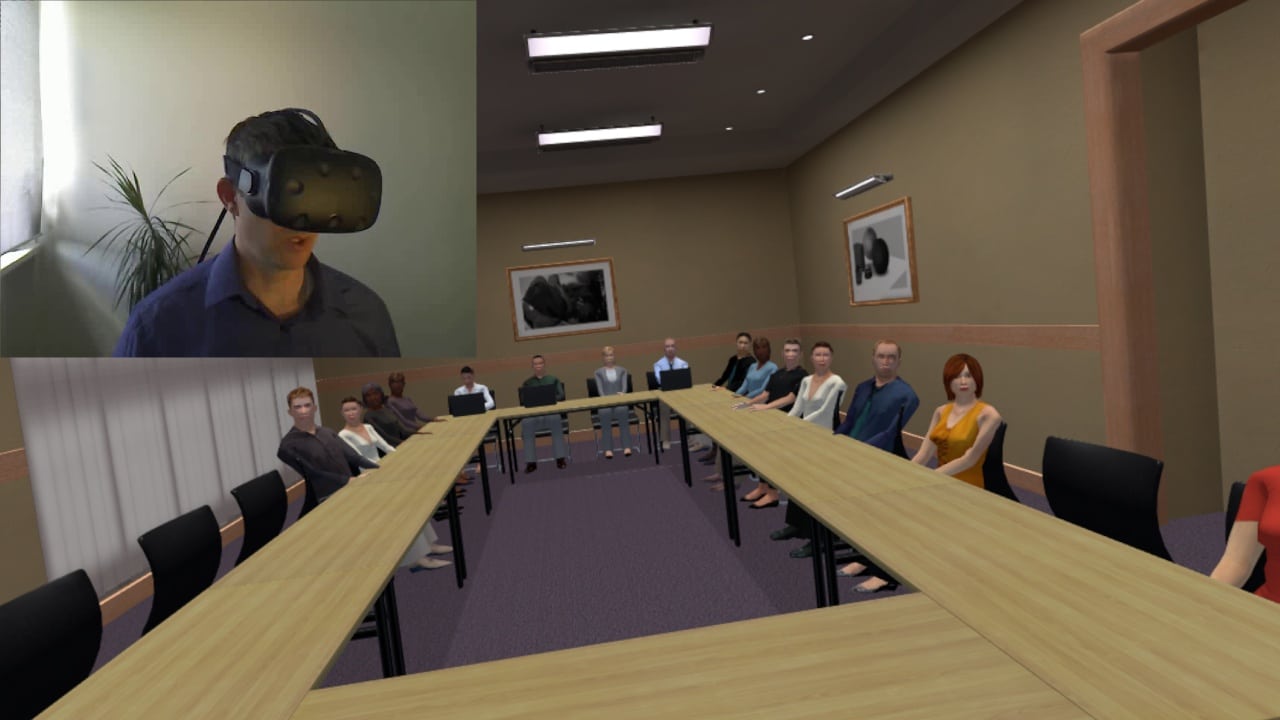Your cart is currently empty!
Public Speaking is one of those skills that most of us wish we had. We are in awe of the orators of the world; of their presence on stage, how they stand there in the spotlight, how they can deliver such persuasive speeches.
Although we wish we were capable of speaking in public, we rarely take steps to improve our ability until it is required of us. When looking for advice on public speaking, you’ll find a lot of people giving a lot of tips. One commonality stands out: practice.
Practice is the one thing that all the experts seem to agree. Whether it is for overcoming a fear of public speaking or delivering a good presentation, practice is a key component. The biggest hurdle to good public speaking is that no one ever seems willing to practice public speaking.
We’ve created a virtual reality tool, Virtual Orator, which I believe helps address some of the biggest issues surrounding practicing public speaking. It probably can’t solve a lack of motivation or a belief that you don’t have time, but most of these are excuses created to cover up the real issues stopping us from practicing.
Limited Opportunities for realistic practice
Lets suppose you are motivated to practice. How do you practice? Here are the standard tips on the web. They are all likely familiar. That we aren’t already doing these things indicates they aren’t ideal.
- looking in a mirror,
- recording yourself (and presumably watching yourself afterward),
- present to family/friends/colleagues,
- join a speaking club
Each of these methods has its benefits and detractors. I’ve ordered them roughly by potential for benefit. Generally, the more realistic the practice, the better it is (see post coming soon about this). Feedback is also an important factor. Depending on your location, none are overly difficult to make happen. Yet we don’t do these, particular the two most beneficial. Why? The same reason we don’t want to speak in public:
Fear of social rejection
For the majority of us, at least the 70% that reportedly fear public speaking, it all comes down to social pressures and the fear of rejection. There might be other reasons we believe drive our fear, but likely all of them come down to the psychology of social pressures. I’ll have posts specific to fear in the near future.
How VR can help
If fear and limited opportunities are what keep us from becoming skilled in public speaking, or at least from the training that is necessary for us to achieve that feat, how can we overcome them? A virtual reality (VR) product like Virtual Orator can help. Lets look at the issues and how they play out in real life and using VR.
Become an Orator, Virtually
Getting meaningful practice in real life can be challenging. Those challenge too often provides us with the excuse we need to avoid practicing our public speaking. VR and Virtual Orator make getting realistic practice as easy as putting on an HMD. The true benefit of VR is in the control of the situation. We can always get a situation that is right for us to train our public speaking in VR with Virtual Orator.
WHAT’S YOUR EXCUSE?
Dr. Blom is a long time researcher in the VR field. He is the founder of Virtual Human Technologies, which applies VR and avatar technologies to human problems and helping better understand people. Virtual Orator exists largely because Dr. Blom wishes he had had such a tool instead of the ‘trail by fire’ he went through learning to speak in public.


